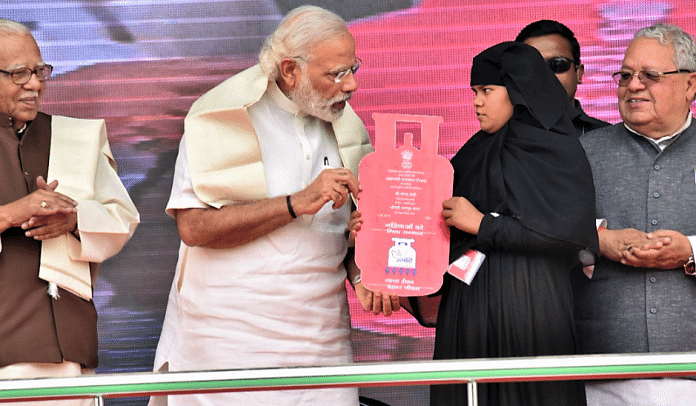Legal experts are not sure if the government’s move is feasible since divorce is part of civil law and would entail amending the Shariat law.
New Delhi: Days after the Centre announced that it had set up a panel of top ministers to make a new law to criminalise instant triple talaq, lawyers and campaigners fighting for the rights of Muslim women have a simple question – is it even legally possible to criminalise instant triple talaq or is this just a political move?
Tuesday’s announcement by the NDA government of Prime Minister Narendra Modi also said that the bill to make this law is likely to be introduced in the winter session of Parliament that starts next month.
But given that divorce is part of civil and not criminal law, the question of making the offence punishable under the Indian Penal Code (IPC) does not arise, argues Zakia Soman, co-founder of the Bharatiya Muslim Mahila Andolan, one of the petitioners in the Supreme Court case against instant triple talaq.
The apex court had struck down the practice of instant triple talaq in August.
“Such a move would not even help us. Instead the likes of Owaisi would cry victim and say Muslims are being attacked,” Soman said, referring to Asaduddin Owaisi, president of the All India Majlis-e-Ittehadul Muslimeen. Owaisi has been a vocal critic of government or judicial interference in Muslim personal law.
Pandora’s box
Senior advocate Indira Jaising who appeared for Bebaak Collective, a voluntary group that had challenged triple talaq in court, suggested that instead of penalising triple talaq the government should look for civil remedies.
For instance, “consider making the Dissolution of Muslim Marriages Act, 1939 gender neutral”, she said. Talaq-e-ahsan, or talaq pronounced thrice over a period of three months, is the valid form of Muslim divorce but is also unilateral and does not need the consent of women.
To be sure, criminalising triple talaq would entail amending the Muslim Personal Law (Shariat) Application Act of 1937 popularly known as the Shariat Act – a move which could potentially make laws on polygamy and nikah halala (remarrying a divorced husband without an intervening marriage with another man) possible and open a pandora’s box.
So far, no offence has been legislated into the Shariat law.
Government yet to figure out
However, Minority Affairs Minister Mukhtar Abbas Naqvi told ThePrint Wednesday that the government is yet to decide whether the practice will actually be made a punishable offence. “There has been no draft or discussion in this regard yet,” he said.
A senior law officer in the know, who spoke on condition of anonymity, also said that the government had not yet figured out how to go about criminalising instant triple talaq.
The Supreme Court had in August declared in a 3:2 ruling that instant triple talaq is unconstitutional. The ruling ensures that uttering talaq three times in quick succession will not be legally valid as divorce.
In the light of the apex court ruling, the Centre had also categorically stated that there was no need for legislation.
“Nothing remains to be legislated after the court ruling. Instantaneous triple talaq does not take effect. The other forms of talaq, approved by the court is already clearly laid down in personal law itself,” said lawyer Nizam Pasha, a lawyer involved in the case.
Criminalising utterance of instant triple talaq, he added, would be an unjustifiable restriction on freedom of speech and expression.
“Stringing talaq thrice is now meaningless. If merely uttering something meaningless is made a criminal offence, it would be constitutionally invalid,” Pasha said.
Flavia Agnes, a women’s rights lawyer and co-founder of Majlis, a non-profit providing legal services to women and children, said that the government’s move unnecessarily targets Muslim men. “There are adequate legal options. Cases can be under the Domestic Violence Act and 498A of the Indian Penal Code,” she said, referring to the law that deals with cruelty towards a wife by the husband and his family.
“But if you send the husband to jail, you are ensuring that the marriage is over. Muslim women want the continuance of marriage and avoid destitution,” she said. “The government’s move helps no one.”



